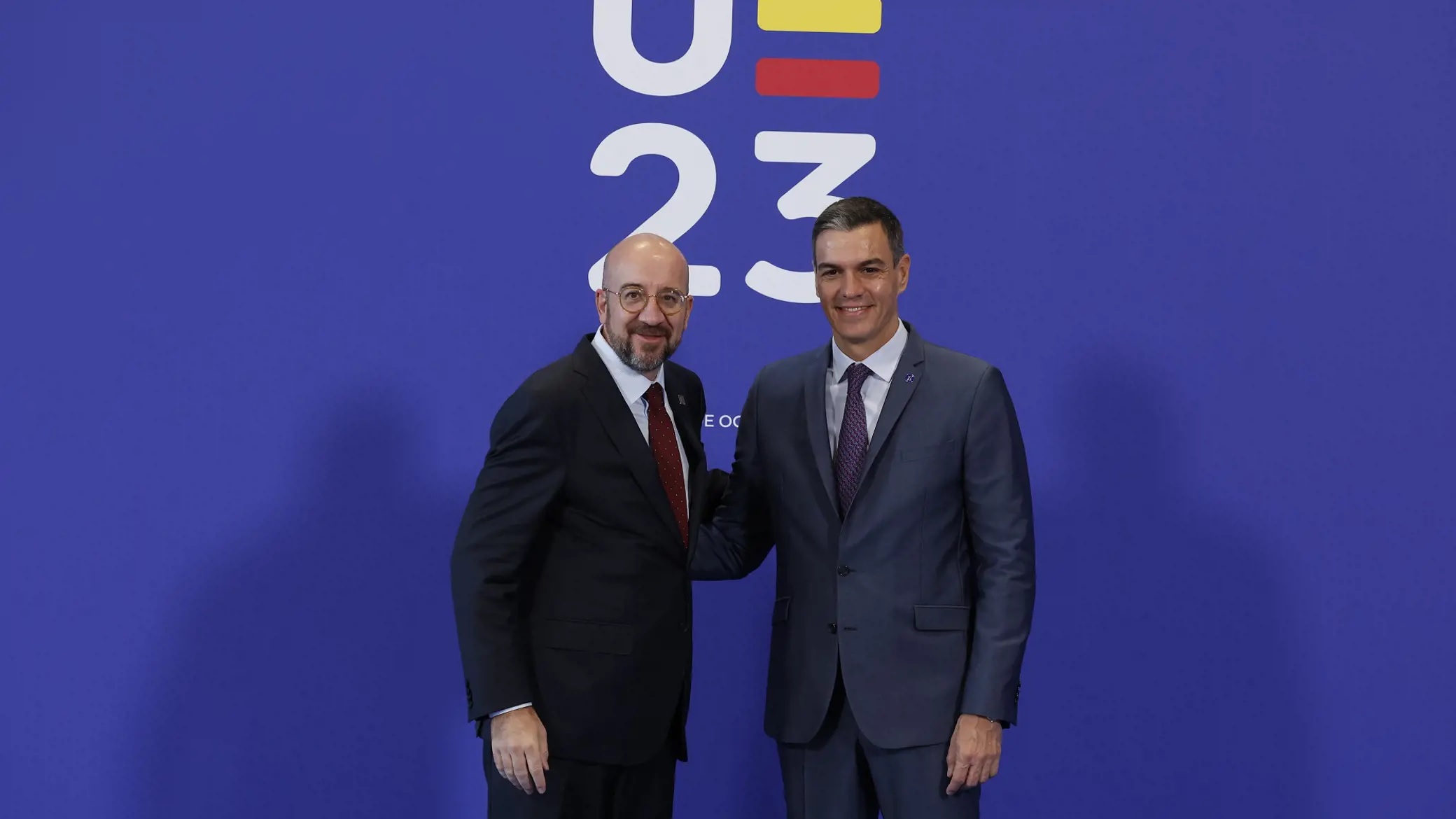From 1 July to 31 December 2023, Spain holds the Presidency of the Council of the European Union for the fifth time.
The Presidency of the Council of the EU is based on a rotating system that dates back to the beginning of European integration. Every six months, one Member State takes over the Presidency of the Council of the EU and ensures that the EU legislative process runs smoothly. The term of office is every 13 and a half years.
Member States that hold the presidency in succession work closely together in groups of three. This system was introduced in 2009 by the Lisbon Treaty. Each trio sets long-term objectives and prepares a joint programme of topics and issues to be dealt with by the Council over the next 18 months. Based on this programme, each of the three countries develops its own more detailed six-month programme. The current group consists of Spain, Belgium and Hungary.
The Spanish Presidency of the Council of the EU started on 1 July and will last until 31 December 2023.
The motto of the Spanish Presidency is:
Europe, closer
The motto symbolises human, political and institutional proximity.
In recent decades, Europe has shown how much it can do for Spain. The time has come for Spain to show the world how much it can do for Europe. Our country takes over the Presidency of the Council of the European Union with humility and gratitude. But also with ambition – we have decided to use it to improve the lives of our citizens, said Spanish Prime Minister Pedro Sánchez on 15 June 2023, during the presentation of the political priorities of the Spanish Presidency of the EU.
Spain took over the Presidency at a time of great challenges for Member States and the European Union as a whole. Spain has chosen four work priorities for its Presidency:
Reindustrialising the EU and ensuring its open strategic autonomy
The international openness of the last seven decades has been mostly beneficial to the EU and has allowed it to achieve levels of economic growth and social welfare that would have been unattainable under conditions of protectionism.
However, this openness has also facilitated the offshoring of industry in strategic sectors, making the EU overly dependent on third countries in areas such as energy, health, digital technologies and food.
The geopolitical, technological and environmental changes currently underway offer Spain an opportunity to reverse this trend, attract new companies and jobs to Europe and reduce Europe’s vulnerability to external threats.
To achieve this, the Spanish Presidency will act on two fronts. On the one hand, it will promote those measures that favour the development of strategic industries and technologies in Europe, the expansion and diversification of its trade relations and the strengthening of its supply chains, paying particular attention to Latin America and the EU-CELAC Summit.
On the other hand, it will propose a forward-looking, comprehensive strategy to ensure the EU’s economic security and global leadership by 2030, ensuring continuity and special insight into the work of the European institutions and the roadmap agreed at Versailles by the 27 Member States.
Advancing green transition and environmental adaptation
For Europeans, reducing climate change and environmental degradation is not only a legal and moral obligation, but also a huge opportunity. If used well, the green transition will drastically reduce our dependence on energy and raw materials, lower our electricity bills, increase the competitiveness of our companies and create almost one million jobs in this decade alone.
The Spanish Presidency is to make every effort to support this transformation. Spain will promote the reform of the electricity market to accelerate the deployment of renewable energy sources, lower electricity prices and improve system stability. It will also work to accelerate legislation related to the Fit for 55 climate package, including the gas and hydrogen package, and energy efficiency legislation. In addition, it will promote measures to reduce waste and microplastics, the design of sustainable products and the production of green fuels.
These actions will be carried out so that the EU continues to lead the global fight against climate change, creating prosperity and new opportunities throughout its territory.
Promoting greater social and economic justice
In the future, it will not be enough to increase GDP in Europe. It will be necessary to ensure that the wealth generated benefits all citizens and serves to improve their opportunities and living standards. The European Union needs not only a more competitive economy, but also a fairer and more caring one.
The Spanish Presidency is therefore expected to advocate the establishment of minimum and common standards for corporate taxation in all Member States and is to fight tax evasion by large multinational corporations, which costs the EU 1.5 GDP points each year – the same amount it spends on housing and environmental protection.
Under its presidency, Spain is also working to revise the 2021-2027 multiannual financial framework and properly reform fiscal rules to overcome austerity, increase transparency and combine the sustainability of public finances with adequate funding for the green and digital transformation. It is also seeking to extend workers’ rights in several areas and for vulnerable groups such as children, women experiencing violence and people with disabilities.
Strengthening European unity
In a world of uncertainty and increasing geopolitical tensions, the EU must remain united. Therefore, the Member States should continue to make progress in integration and develop tools that will allow them to face the great challenges of our time together.
To this end, the Spanish Presidency is expected to advocate greater deepening of the internal market, completion of the banking union and the capital markets union, consolidation and improvement of common instruments such as the Next Generation EU funds, more efficient and coordinated management of migration and asylum processes, and coordinated support for Ukraine and other neighbouring countries. Spain is also working to develop a common EU identity and values and support a new phase in the development of the European project.
Lorem ipsum dolor sit amet, consectetur adipiscing elit, sed do eiusmod tempor incididunt ut labore et dolore magna aliqua. Tellus in metus vulputate eu scelerisque felis imperdiet proin. Non blandit massa enim nec dui nunc mattis enim. Vestibulum rhoncus est pellentesque elit ullamcorper dignissim. Nulla porttitor massa id neque aliquam vestibulum. Odio euismod lacinia at quis risus sed vulputate odio. Laoreet sit amet cursus sit amet dictum. Elementum curabitur vitae nunc sed velit dignissim. Pulvinar elementum integer enim neque volutpat ac tincidunt vitae. Elementum integer enim neque volutpat ac tincidunt vitae semper quis. Leo vel orci porta non.



Sledź nas na: